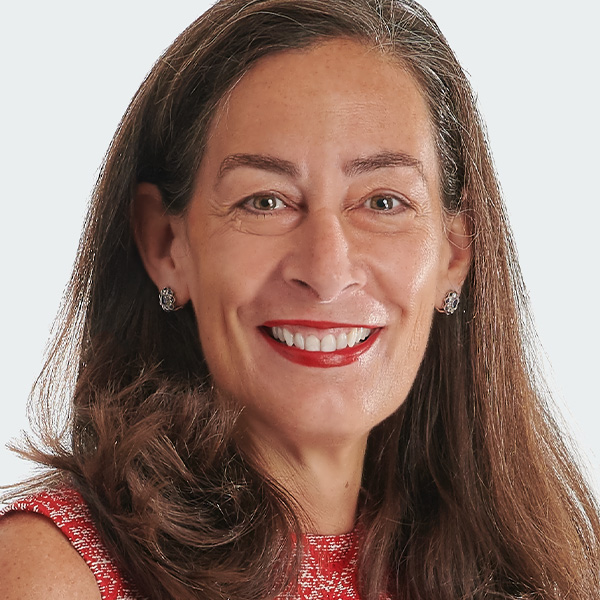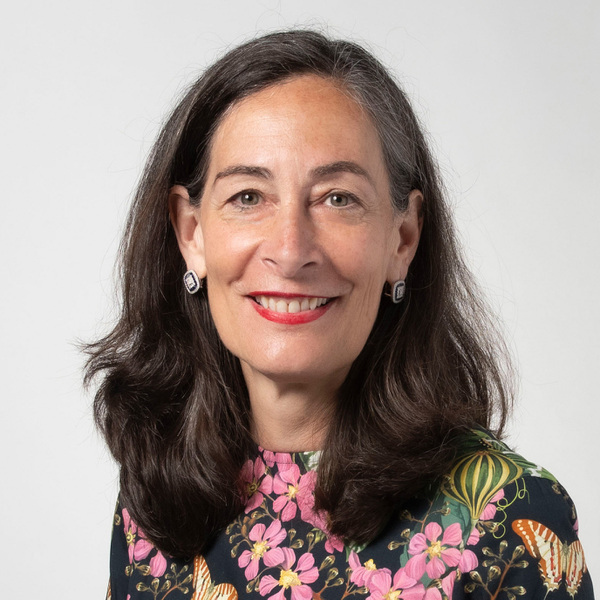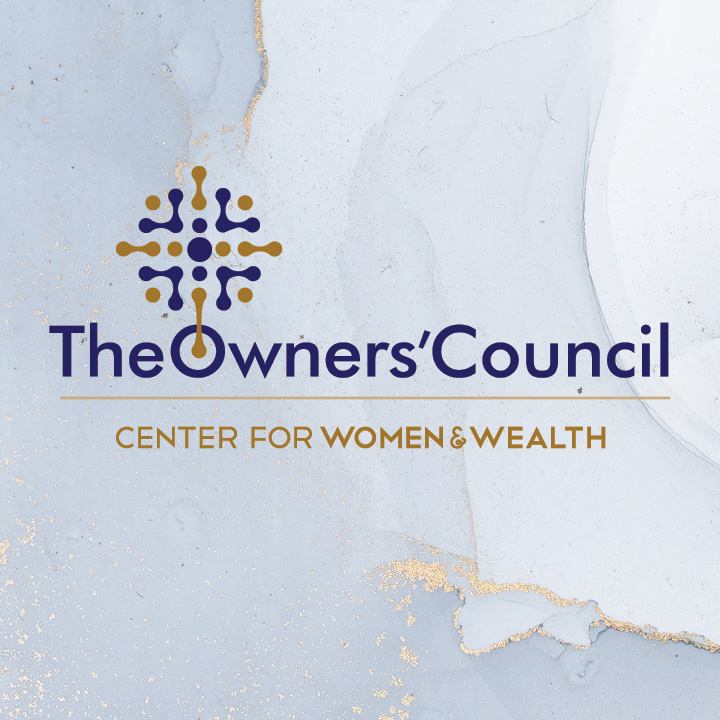To say Katie Couric is a media industry powerhouse may be an understatement. For nearly three decades, she has graced TV screens across the United States through host, anchor and correspondent roles on the country’s major networks. Beyond that, the award-winning journalist is a best-selling author and a staunch advocate for causes she believes in, having started cancer research and awareness programs and produced documentaries examining hot-button issues.
We recently had the pleasure of sitting down with Couric, a client and the wife of BBH Partner John Molner. During our conversation, we discussed her professional journey as a female journalist and broadcaster, achieving gender parity in the media industry and her recent documentary for National Geographic, “Gender Revolution: A Journey with Katie Couric.”
You seem to use media not just to report on people or events, but to compel action or drive change. What are your priorities, and why?
I think that people who gravitate toward a career in journalism are interested in exposing wrongdoing, giving a voice to the voiceless and providing viewers or readers a way to get to know people who are different than they are. Journalists are exposed to a wide range of individuals who are geographically, demographically, ethnically and socioeconomically diverse – and I would like to think that as a result, we are generally tolerant and inclusive. Curiosity has fueled my career and has motivated me to learn more about the world and hopefully help enlighten others. Many of the projects that I am drawn to have that end in mind.
You have been in front of the camera since 1989. How have perceptions of women in the media changed since you began your career?
They have changed somewhat, but not enough. It is promising that there have been more opportunities for women in journalism. When I started my career, most of the women in the news were relegated to less authoritative positions, such as secretarial jobs or production assistants. There are more female anchors and reporters now, but there is a lot of room for growth.
Women need to be able to age on TV like Bob Schieffer and Charlie Rose – two people I admire. Too often there’s a double standard for women.
How can we drive the media industry toward greater gender parity?
We have to make a more concerted effort. There is a brilliant woman at the Harvard Kennedy School named Iris Bohnet who focuses on tangible practices, such as blind resumes. However, we need women in positions where they are hiring. I believe that having women in decision-making positions is what truly drives change. Studies have proven that people hire people who look like them. That is a problem, but if you have women in positions where they are hiring, I think you would see more women.
There has to be a more conscious effort to have a diverse workplace. It is changing, but it is changing at a slow, glacial pace. I think people are well-meaning and understand how important it is to be more inclusive. However, I also wonder whether some people feel like they have to be inclusive as opposed to believing in the business case for why it is imperative.
There are conditioned attitudes toward women that can act in opposition to these goals. I was at a board meeting recently, and I noticed that one of the women board members who is incredibly competent undermined her own authority by expressing her opinions in an apologetic way. We have to make women feel comfortable being powerful.
I am also cognizant of the impact of loaded language. When I was an evening news anchor, I would question the writers’ word choices and ask them if they would ever describe a man the way they were describing a woman – for example, you would never call a man shrill. Ambitious can also be a pejorative term for women. We have to be more aware of these subtle signs of sexism. They add up and erode our confidence over time.
I am an unapologetic feminist. Women should have equal opportunities. I believe that there is still a lot of implicit and explicit bias in terms of gender, race and sexual orientation.
Have you always been a feminist?
Always.
Everyone is talking about unconscious bias. It is becoming part of the narrative of senior executives across industries. How important is recognizing implicit and explicit bias to tackling the issue of parity?
I am much more cognizant of unconscious bias today. There are things that may not have fazed me in the past, but now I am constantly witnessing real-world examples of bias. However, disrupting bias sometimes requires erasing years of conditioning. The more we experience different people’s situations, the more we are aware.
We surround ourselves with people who are like us. We often live in silos. As a journalist, I cannot make people interact with people from different communities, but I can expose them to individuals from different communities to make them see those individuals as human beings, feel their pain and understand their challenges – and as a result, be more accepting, tolerant and aware.
Have you done that with your recent documentary, “Gender Revolution: A Journey with Katie Couric,” which explores the transgender community?
The documentary opened up a lot of eyes. I have heard from many people in the LGBTQ community about how much they appreciate it and have had friends tell me it changed their point of view.
Has there been any backlash?
No, there has not been a lot of backlash, and that is heartening.
Do you think Caitlyn Jenner paved the way for this conversation?
She opened the door in a powerful and courageous way and prompted a lot of questions. Curiosity about this subject has grown, but people often do not understand the science behind it. They also do not realize what it is like for families who have a child who is transitioning. A lot of parents and many schools are wrestling with this topic. The more we learn about what transgender means, the more we can understand it. I am proud that we were able to advance the conversation.
Was it emotional?
It was very moving for people to trust me with their stories – that is a big leap of faith for anyone.
People were also incredibly patient. One of the reasons the documentary was effective is that I showed my ignorance about transgender issues. I think people appreciated that because it made them feel as though they were invited on this exploration and discovery with me.
What made you interested in this project?
I asked a transgender model a question about anatomy that was inappropriate. I purposely kept it in the episode of my talk show because I thought that I could make it a teachable moment. I was willing to admit that I asked a dumb question.
I also thought that since I was doing a show about transgender people, it should be a safe space to ask dumb questions. However, we were not at a point of understanding the issue yet. The transgender community has been mistreated and marginalized, and as a result, many people are sensitive. I now really appreciate that.
What do your daughters say about it?
The documentary has exposed that there is a tremendous generational divide on this subject, and I tried to bridge the generation gap. Kids today are unfazed about gender. I hope it will continue because this is a serious public health issue – 40% of transgender people attempt suicide.
Do you consider yourself an ally to the transgender community?
I do. As a journalist, you never want to be too much of an advocate. However, sometimes you have to do what is right, stand up for people and use the pull you have established toward the greater good. At this point in my career, when I think that I can move the needle and increase understanding, I feel a responsibility to do it.
You have had the opportunity to interview a lot of people throughout your career. Do you have a favorite interview?
That is so hard. It is like having to pick your favorite dinner! I have been lucky to have talked to so many people in different arenas. Interviewing authors and writers is particularly gratifying because they are usually passionate about their work. They have immersed themselves in a topic, they are engaged, and they care deeply. They are as excited about the opportunity to talk with me as I am about the interview.
Favorite authors?
I love Herman Wouk as an interview subject. He is exceedingly charming. I also love Linda Fairstein, who is a personal friend, and Jodi Picoult.
In a recent interview, you spoke with Sheryl Sandberg about grief. She talked about how instrumental you were in her grieving process after she lost her husband. How did you help her?
I think she gave me more credit than I deserve during that interview. It is difficult to understand how awful it is to lose someone. When Jay, my first husband, died, it was helpful for me to talk to two categories of people: people who had lost someone, and people who loved Jay. For Sheryl, I was in that first group. I was able to tell her that you can recover, that we all have a finite amount of time on the planet and that you can find joy. I think she was in a dark place, and she needed to hear encouragement from somebody who had been in that place. That is how I was able to help her. It gave her optimism that there would be light in the future.
After you lost Jay to colon cancer, one of your most famous TV moments was undergoing a colonoscopy. Was this a necessary part of your grieving process?
It seemed like a no-brainer. I was in a position to educate the public. I had learned first-hand how little people understood about colon cancer screening. It is the No. 2 cancer killer, and this test saves lives. I thought that if I could influence a few people to get screened, it was worth it. It has been 19 years, and people still tell me they got a colonoscopy because of that program. It is still reverberating, and the idea that I was able to help save a few lives is amazing.
It is a privilege to be able to influence people’s attitudes or behavior in a positive way. We all have a lot of power to affect and inspire people, and sometimes we do not realize it. Even in our small circles, our communities or our workplaces, we can have an impact.
You interviewed former Gov. Christine Todd Whitman recently, as we did at the Center for Women & Wealth. During our conversation, she said that she thinks women need to help other women more often. Have you ever experienced women not helping each other?
Yes. Part of the archetype of women in our culture is still cat-fighting. A women’s magazine asked me to write a piece about Megyn Kelly competing with Kelly Ripa in the morning. I told them that I would write that piece after Esquire writes a piece about David Muir competing with Lester Holt. To be successful, you have to be competitive. Why shouldn’t women be as competitive as men? It is a strange concept.
Do you talk to your daughters about being strong and independent?
Yes. I have always stressed the need for them to be financially independent. You never know what the future may bring. I certainly never expected to lose my husband Jay when he was just 42 years old and our girls were 6 and 2 years old. They watched me work hard to support our family their entire lives, and they are both extremely hard workers. They have had a much more privileged upbringing than I did but have also witnessed my frugality and lack of ostentation – I still love a deal and am careful with my money! So they both want to do well and be smart about their finances. They also see the importance of giving back. And that is what makes me proudest of all.



